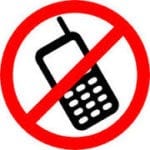On the 25th of November 2016, The Fair Work Commission ruled that a major employer had a valid reason to dismiss a worker for answering a call while driving. (See related article here) Even Though the Fair Work Commissioner Peter Hampton found the dismissal to be unfair due to the fact that the worker’s actions were a “reflex response” to what he thought was an emergency call.
The article refers to a worker that was using a satellite phone which he used in “emergency situations”. The reflex that Peter Hampton was referring to is that if the phone rang, the driver would instinctively think that it was an emergency call.
Even though operators may think that they have a right to have a phone on them at all times (even while driving), using a phone of any type while driving is a critical risk activity. It is for this very reason, that the worker’s submission for unfair dismissal case was rejected.
Does your company have a Mobile Phone Policy in place?
We all know the risks associated with using mobile phones while driving. This includes texting, calling with or without handsfree etc. Naturalistic driving studies have shown that dialling a mobile phone while driving increases the risk of a crash, a near-crash or other safety-critical event by up to 12.2 times. “A Guide to Developing an Effective Policy for Mobile Phone Use in Vehicles” This guide also provides valuable information on creating an effective Mobile Phone policy in your organisation regardless of what industry you’re in.
How to deal with inappropriate mobile phone use in your work
“The cases show that the “immediacy” of mobile phones makes their use “highly dangerous” in many environments.” Mark Ritchie of the Victorian Employers’ Chamber of Commerce and Industry (VECCI)
There are 4 basic things you can do to deal with unsafe mobile phone use in your workplace. These are:
- Conduct a basic risk assessment to determine whether workers are accessing and using mobile phones at work putting themselves or others at greater risk, and whether they’re prudently moving away from plant and vehicles and going to a designated area to use them;
- Hold team discussions regarding mobile phone use and utilise HSRs or toolbox discussions to determine how employees use their mobile phones and, importantly, when and where they shouldn’t be used in the workplace. Health & Safety Representatives provide an excellent source for input during the discussions;
- Provide your workers with mobile phone areas or instruct them to leave the site or go to a designated location such as a lunchroom if they need to use their phones;
- Customise your policies and procedures to include mobile phone use so workers are clear about what is and isn’t allowed. These policies should be written, and should be included in any road safety training and general inductions.
There is not one solution that suits all types of businesses here. This is why a basic risk assessment should be conducted to identify the risks involved with the company’s work activities.
Contact us today to find out how we can assist you to customise your organisation’s policies and procedures.


Recent Comments